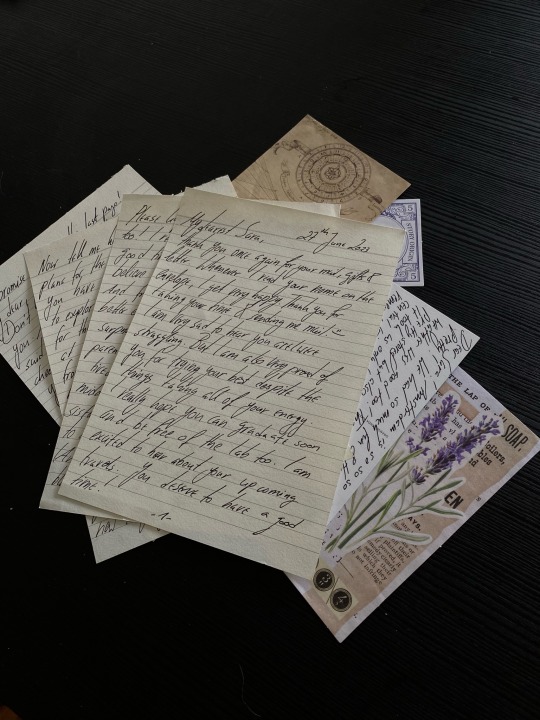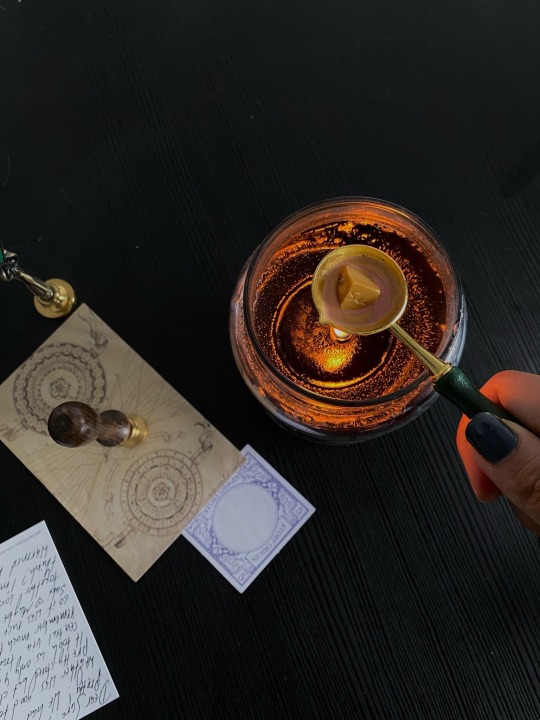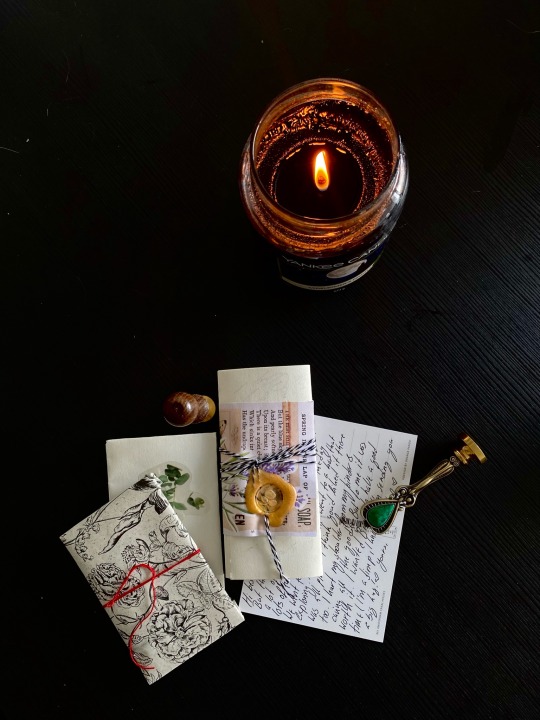folkloristwitch
6K posts
Don't wanna be here? Send us removal request.
Photo










Civil Basilica
Aphrodisias, Asia minor (Turkey)
1st century CE
In the later first century CE, major construction continued probably without a break. The extravagantly decorated Sebasteion was the main building project in the city in the mid-first century CE and had been finished in c. 60 CE in the reign of Nero. Work soon began on another huge monumental building, the Civil Basilica, which opens off the South Agora at its south-west corner. It is clear from details of technique and design that the building crews of the Sebasteion were re-formed for, or simply moved to, the Basilica project. When completed in the later first century CE, it was dedicated to the Flavian emperor(s ), the new imperial dynasty at Rome.
The Civil Basilica was a long, three-aisled public hall (c. 145 X 30 m) that opened off the South Agora at its south-west corner. Its architectural decoration and a surviving part of its dedication suggest it was completed and dedicated in the late first century CE. The building was entered on its short end, which opened onto the South Agora. The entrance wall was an elaborate, engaged columnar façade closed by extensive marble panelling (see below). It was on this panelling that Diocletian’s famous Edict of Maximum Prices and his Currency Edict were later inscribed, in Latin, in 301 CE.
The interior was divided by two-storyed colonnades (of the Ionic and Corinthian orders) into two side aisles and a central, paved nave. The interior culminated in a grand south hall (c. 20 X 30 m and over 10 m high), like that of the basilica at Aspendos. The inside walls of this south chamber were articulated with elaborate columnar architecture. The upper storeys of the nave colonnades were fitted with sculptured reliefs that formed a balustrade. These reliefs feature a variety of decorative motifs as well as scenes of local mythology, including one of Ninos, a legendary founder of Aphrodisias.
The building was restored by a governor named Flavius Constantius in the mid-fourth century CE, when mosaics were laid in the side aisles. It may have been in connection with this restoration that two old and imposing statue monuments were moved here and set up at the north end of the building, facing down the nave. One was a colossal figure of a draped goddess, the other was an extraordinary horse monument made of blue-grey marble.
Sources: 1, 2, 3




174 notes
·
View notes
Text




Sebasteion, Aphrodisias (1st century) Turkey, dedicated to the Imperial Sebastos, a Greek name for the Roman Emperor Augustus. It was covered with mythological reliefs and Roman emperors. With this monument we wanted to highlight the divine origin of the Julio-Claudian dynasty.
374 notes
·
View notes
Text




preparing a letter to a very dear penpal of mine ✨
pls do not repost, edit or use
795 notes
·
View notes
Text


:: books my grandmother read ::
and then my mom read & now I read.
7 notes
·
View notes
Text

St. Gall Library, Saint Gallen, Switzerland
• It was founded in the 8th century and contains over 170,000 documents, including many rare and valuable manuscripts.
• Nearly half of the handwritten books are from the Middle Ages, and 400 are over 1000 years old!
• The library is also known for its stunning baroque architecture, which was added in the 18th century.
Photo By Till Forrer
3K notes
·
View notes
Photo

The Cathedral of Ani (est. 1001).
> Photo: Bjørn Christian Tørrissen.
191 notes
·
View notes
Text

Jorōgumo, Edo period. A type of yōkai in the form of a demonic spider in Japanese folklore, that takes the form of a beautiful woman, seducing and consuming unwary men.
2K notes
·
View notes
Text

Nadia Waheed (Pakistani, 1992) - Dream Mythology I (2025)
8K notes
·
View notes
Text

Taylor Schultek (American, 1990) - Seance (2025)
3K notes
·
View notes
Text

Marin Majić (German, 1979) - Behind the Bend (2023)
839 notes
·
View notes
Text

Raqib Shaw (Indian, 1974) -Space Between Dreams - The Mystic Soothsayer (2023)
503 notes
·
View notes
Text
Capability Brown: Designing England’s Gardens
Capability Brown left an extensive legacy as he swathed his way through more than 150 gardens of the aristocracy in the mid-18th century, introducing a brand new ‘natural’ style
By Janine Wookey
Who was Capability Brown?
Lancelot ‘Capability’ Brown was the first celebrity garden designer. In the 18th century he was the man who, for the first time, made gardening fashionable in all the right circles – and he was the top people’s top man, rising from lowly beginnings to become royal gardener to the young King George III in charge of Hampton Court. Horace Walpole, the playwright son of the British Prime Minister Robert Walpole, said of him, “We have reached the peak of perfection. We have given the true model of gardening to the world.” That’s enough to turn anyone’s head.
Why the ‘Capability’? Nothing to do with his talents, in fact, but from one of his favourite phrases when evaluating a new garden, when he would turn around to the owners say, “This garden has capabilities for improvement.”
Capability Brown’s style
Utilising those capabilities he has left an indelible – and hugely distinctive – mark on English garden style. A style that has over the centuries come to epitomise Englishness in gardens or more accurately, parklands. England went ‘natural’ but a lot of artificiality went into that natural look.
So where had the idea come from? Before Brown, gardens in England were a mix of Tudor, Dutch and French traditions, very formal and stylised. The Italian look was just coming into the picture as landowners returning from their Grand Tours brought home souvenirs and fancied recreating the wonders of Rome and Venice.
But the feeling was one of enclosure, of inward looking and heavy formality. It was somewhat stultifying. People were ready for a change and it wasn’t just Brown – others were thinking along more naturalistic lines. William Kent was one and their paths crossed fortuitously.
rown was most prodigious. There are some 150 gardens in England that were designed – or heavily influenced – by him. So while England is now rich in Capability Brown landscaped gardens, on the flipside, has to be said, it suffers something of a dearth of gardens from previous eras. However, at the time, it must have seemed, literally, like a breath of fresh air. Instead of being an enclosed thing, a garden became a wide-open expanse with views and vistas. Strategically placed clumps of trees gave interest – and, if there was one key thing, it was water. And if there is one word, other than ‘natural’, that is linked to Brown it is ‘serpentine’. The lakes he designed always had waving irregular edges, rivers were encouraged – sometimes, compelled – to snake through the grounds. His water was never square or round, the shape was always sinewy.
Terraces were abolished for being ‘unnatural’ and the ground was to have undulating contours. He moved thousands of tons of earth to get that gently sloping contoured look in his time. Brown was a man with a mission: to “root out the unnatural bad taste of the old style”.
Why did Capability Brown dislike flowers
An interesting characteristic of this new style (which eventually led to its falling out of favour) is the absence of flowers. There was no place for them in this brave new world of vistas. They were banished back to the kitchen garden and allowed to stay only within a walled enclosure.
But the upside was that the large specimen tree became a star, planted to take pride of place on its own and not just as part of a wood. Brown used trees as a landmark, so the garden assumed more of a park-like style. In one garden alone he planted 100,000 of them, mostly oak, so although he destroyed many, he did plant many.
Capability Brown’s early life
Gardener to the great he may have been but he came of humble stock. Born in Northumberland, on 1716, to a farm labourer, Lancelot was baptised in the local village church in Kirkharle. Little is known of his early life but he went to a good school at Cambo, staying there until he was 16, before being apprenticed as a gardener’s boy to a local landowner, Sir William Loraine at Kirkharle Tower.
Working in the vegetable garden, he learnt his gardening skills. At 23 he moved to Wotton, owned by Sir Richard Grenville, and, from there, to Stowe in Buckinghamshire (owned by Grenville’s son-in-law, Lord Cobham) as under gardener under William Kent, who he discovered was an enthusiast for the burgeoning trend towards a landscape style, as a reaction to the straight jacket of the existing fashions.
Who influenced Capability Brown?
It was Kent who coined the phrase “nature abhors straight lines”. Lancelot adopted the philosophy wholeheartedly and the two men became good friends, working closely together at Stowe until Kent’s death in 1748.
At 26, in 1742, he became head gardener at Stowe, just as the owner Lord Cobham was intent on expanding his home and the estate in a most splendid style to impress his many influential friends, who included Jonathan Swift and Alexander Pope. This was to be Brown’s first major commission, shared with Kent, and is today regarded as his most classic interpretation of the bold naturalistic style. A Grecian valley, which is still one of Stowe’s most impressive monuments, has broad sweeps of wildflower meadows framed by huge plantations of oaks, limes beeches and chestnuts. Magnificently tall and lofty now, but what a vision he must have had on how it was all going to look in a hundred years’ time.
Brown stayed at Stowe for ten years. He married there in the local church which has the details etched on a window. In 1750, after both Kent and Lord Cobham had died, Brown moved to London with his wife and children and set himself up as an independent creator of gardens – or ‘place maker’ as he liked to style himself in later years – and the work came rolling in.
Capability Brown’s most famous gardens
At Luton Hoo in Bedfordshire, for example, now a hotel, Brown was commissioned by two successive owners in the 1750s and 60s. Many of his original designs can still be seen today and a massive project to restore the estate to its former glory has seen 17,000 plants, shrubs and trees being planted on the golf course alone.
Burghley House in Lincolnshire was a truly mammoth task, which took Brown more than 25 years and was probably the most important in his career, which he described as “25 years of pleasure”. The 9th Earl of Exeter commissioned him in 1755 to landscape a great park, seven miles round, to go with the great Elizabethan house. ï
By the end, in 1779, he had swept away the formal gardens and many of the lime tree avenues; widened the river, converting it into a Serpentine Lake that covered 32 acres crossed by an elegant stone bridge; put a summerhouse beside it; designed a stone bridge and planted intimate groups of trees around the perimeter of the park, no only to be enjoyed, but also, more practically, to useful for the new sport of game shooting.
The following year, 1757, there was Longleat, in Wiltshire a great Elizabethan house (1580) with an Elizabethan garden and park. Lancelot Brown’s re-designs, which involved completely rooting out the Italian Renaissance formal garden and turning it into a sweeping landscape, caused a visitor in 1760 to remark that “the gardens are no more. They are succeeded by a fine lawn, a serpentine river, wooded hills, gravel paths meandering round a shrubbery, all modernised by the ingenious and much sought-after Mr Brown.” Another young garden up-and-coming designer, Humphry Repton, who was to follow in his footsteps, praised Brown for turning a little stream at Longleat into “an apparent river”.
Capability Brownand Blenheim Palace
Then there was Blenheim Palace, designed by Vanbrugh in 1705, the nation’s reward to John Churchill, the first Duke of Marlborough, for his victories over France’s Louis XIV. In 1764, the 4th Duke commissioned Lancelot Brown, then at the height of his fame to examine its capabilities.
In a bold move – even for him – two rivers were dammed to create two huge lakes and numerous cascades. It was crossed by a bridge, originally designed by Sir John Vanbrugh who was improving the palace, but disliked by the Churchills for its size, so Brown refined it to an acceptable level. He also naturalised the woods, designed and placed clumps of trees in strategic positions. This is probably his masterpiece – for scale if not for detail.
Capability Brown and the Royal Family
1764 was a good year for Brown, after years of trying for a royal job – he was appointed by George III to look after the gardens at Hampton Court and he moved there to live with his family on a salary of £2,000 a year and, because the King had an interest in gardens, the two men established a good relationship. Brown didn’t actually do much to the gardens but it is thought he may have planted the Great Vine in 1768. Of course, commissions kept flooding in – even more so with his royal connections. There is hardly a great house in England to which Brown didn’t get invited. He travelled widely, sometimes to the detriment of his asthmatic health, as coach travel in those days was uncomfortable. He even made it up to Alnwick in Northumberland to soften the rather bleak, wind blown pastureland there.
But it is the landscaping at Sherborne Castle in Dorset which is probably the best, most charming example of Capability Brown’s work you will ever see, with terrific vistas and scenery – all with the 12th-century ruined old castle as a romantic backdrop. The new castle had been built for Sir Walter Raleigh in 1594 and it was Edward, the 6th Lord Digby, who called in Lancelot Brown in 1776 to model the landscape here.
Always keen on thinking big, Brown had no hesitation in flooding an entire valley, which filled the area between the old 12th-century castle ruins and the new castle to create the 50-acre lake that sets the scale for the rest of the surrounding landscape.
Chatsworth in Derbyshire is more associated with Joseph Paxton who was head Gardener for the 6th Duke of Devonshire in the 19th century, but, before that, the 4th Duke had decided to improve his home and at same time to eradicate the entire village of Edensor because he objected to it getting in the way of his view and, who else, but the great Capability Brown was needed to come and landscape the area? The Duke was pleased with the result but it is unlikely the villagers felt the same.
A visit to Harewood House in Yorkshire gives visitors a novel way to really see Capability Brown’s scenery at its most expansive best. Harewood is one of ten Treasure Houses of England, recognised as England’s finest historic houses, and mostly still lived in, by the families who have owned them for generation. Here you can take a boat across the enormous lake and look back at the grand sweep of the 1,000-acre park that Brown created in 1763 with its Robert Adams Bridge straddling the River Cam.
Best places to view Capability Brown’s work
Possibly the most beautiful view is at Broadlands House in Hampshire, where looking across the beautiful River Test across to the House itself presents a vista that shows his style at its very best. The house, home to Lord Palmerston in the 18th century and to Lord Mountbatten in the 20th century, is Palladian, but the serpentine park was designed by Brown, as were some parts of the house and possibly some alterations to an earlier orangery.
In middle age he even turned his hand to designing houses. His daughter had married the son of Henry Holland, a master builder, and they had worked on various projects together including Claremont in Surrey in the 1860s, where the exceptionally wealthy Lord Clive of India commissioned Brown and Holland to design work at the expense of previous garden designers and, despite all the money spent on it, sadly, not much remains of Brown’s today as the garden suffered much later neglect.
But most of his magnificent legacy is still to be found everywhere today: although people’s enthusiasm for it had waned a bit by the time he died, from a heart attack, in 1783. Could it be they were missing the flowers? But it is appreciated more, today, for the feeling of space it offers.
The legacy of Capability Brown
So more than 200 years after his death in 1783 Lancelot Brown is still bringing us the pleasure of open spaces, gently undulating slopes, strategically-placed trees and wavy water. Truly a man of great capability.
Capability Brown Gardens to Visit
Blenheim, Woodstock, Oxfordshire: www.blenheimpalace.com
Broadlands, Romsey, Hampshire: www.broadlands.net
Burghley House, Stamford, Lincolnshire: www.burghley.co.uk
Chatsworth, Bakewell, Derbyshire: www.chatsworth.org
Claremont Landscape Garden (National Trust), Esher, Surrey: www.nationaltrust.org.uk
Harewood House, Leeds, Yorkshire: www.harewood.org
Longleat, Warminster, Wiltshire: www.longleat.co.uk
Luton Hoo Hotel, Golf & Spa, Bedfordshire: www.lutonhoo.co.uk
Sherborne Castle, Sherborne, Dorset: www.sherbornecastle.com
Stowe Landscape Gardens (National Trust): www.nationaltrust.org.uk
Syon Park, Brentford: www.syonpark.co.uk
Trentham Estate, Stoke-on-Trent: www.trenthamleisure.co.uk
The post Capability Brown: Designing England’s Gardens appeared first on Britain Magazine | The official magazine of Visit Britain | Best of British History, Royal Family,Travel and Culture.
Britain Magazine | The official magazine of Visit Britain | Best of British History, Royal Family,Travel and Culture https://www.britain-magazine.com/features/history/capability-brown-englands-gardens/
source https://coragemonik.wordpress.com/2019/04/29/capability-brown-designing-englands-gardens/
1 note
·
View note














